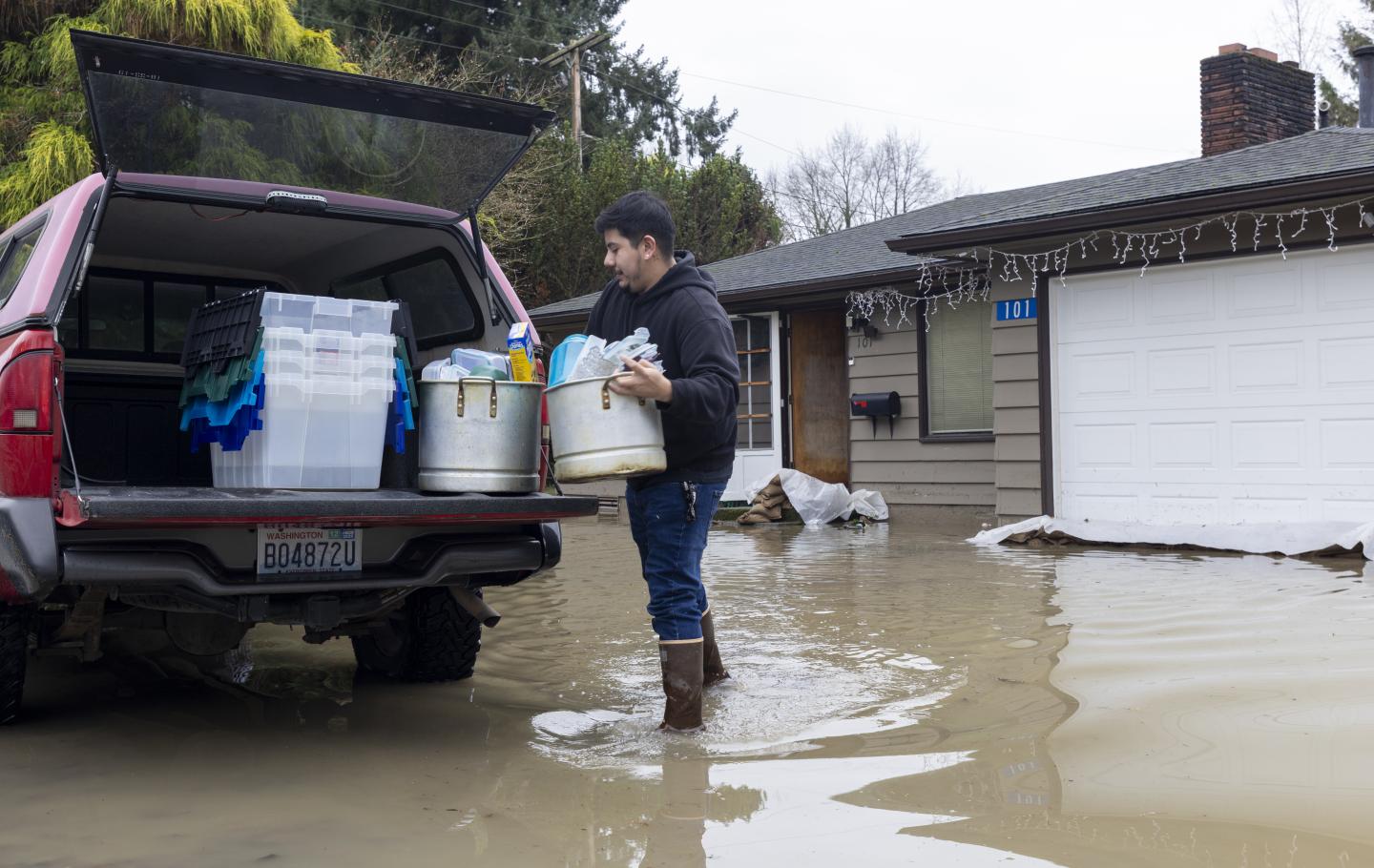Trump administration tries to eliminate major environmental protections
Effort to repeal the Endangerment Finding would put millions at risk
The Environmental Protection Agency is about to repeal the Endangerment Finding: the legal and scientific foundation that underpins its own ability to tackle the biggest environmental threat facing the country today: climate pollution.
A mountain of scientific evidence shows that climate pollution from burning fossil fuels in power plants and gas tanks is warming the planet and fueling more frequent and intense heat waves, storms, floods, and wildfires. These extreme weather events also lead to more air pollution from smoke, smog and industrial accidents, which can cause asthma, raise the risk of heart disease and create other health problems.
The weather disasters alone claim thousands of lives and cause billions of dollars in damage in the U.S. each year. The cost of U.S. weather disasters this year has already reached $93 billion, according to global re-insurer MunichRe.
“With this action, the administration is saying it won’t tackle the root cause of extreme weather that puts us all at risk,” says Peter Zalzal, an attorney with the nonprofit Environmental Defense Fund. “The EPA’s standards to reduce climate pollution are commonsense and the agency must continue to do its job protecting communities.”



The Trump administration wants to stop regulating the pollution that makes dangerous weather events more likely to occur. Deadly events in 2025 include the Los Angeles wildfires (Getty); a June heat wave affecting more than 100 million people (AP Photo/Julia Demaree Nikhinson); and catastrophic flooding in Washington in December. (Getty)
The Endangerment Finding is about reducing danger
In 2009, the EPA concluded that planet-warming pollution, most of which comes from burning coal, oil and gas in power plants, buildings and vehicles, is a threat to human health and safety; and that the EPA has the power — and the obligation — to limit how much is dumped into the air, just as it does for any harmful pollutant.
That conclusion, arrived upon after years of weighing scientific and legal evidence, is known as the Endangerment Finding.
But the Trump administration is bent on erasing the finding, despite the fact that the havoc caused by climate change has only become more obvious and devastating over the last 15 years. Since 2009, Americans have suffered through 255 disasters like wildfires and hurricanes that have caused more than $1 billion in damage, each.
The Endangerment Finding isn’t the Trump administration’s only target. Soon after his appointment by President Trump, EPA Administrator Lee Zeldin announced plans to revisit scores of environmental protections, including life-saving clean car and clean truck standards. Zeldin also proposed repealing those, despite their success in reducing pollution, saving money for consumers and supporting American manufacturing jobs.
The cost of ignoring pollution
The pollution, harm and costs of the Trump administration’s attacks on health and environmental safeguards are enormous. According to an EDF analysis, the repeal of the Endangerment Finding and the major clean air protections it underpins, along with other actions the administration has taken to stifle clean energy and clean cars and trucks, would cause significant harm, up to:
- 340,000 more premature deaths in America
- 490,000 more hospital and emergency room visits across the country
- 32 billion metric tons more climate pollution more than four times current U.S. emissions
- $6.7 trillion in net harms, including higher energy and healthcare costs
“If there are no enforced limits on pollution, you get more of it, making life more expensive and even more dangerous,’ says EDF President Fred Krupp. “The stakes could not be higher for Americans.”
Opposition from companies, courts and public opinion
The administration will face an uphill battle as it attempts to do away with its responsibility to protect the public from climate change. The EPA’s power to limit climate pollution has been challenged before, and time and time again has been upheld by multiple courts, including the Supreme Court.
Given the immense stakes, public health and environmental groups are preparing to oppose the administration’s effort. Even major companies and trade associations, including the American Petroleum Institute and Edison Electric Institute, have recognized the importance of stable, federal safeguards to reduce climate pollution. In a statement, Edison Electric said it would prefer a consistent federal framework to a patchwork of state regulations and lawsuits.
“The EPA is supposed to protect human health and the environment,” says Zalzal. “It simply can’t do that if it turns a blind eye to the biggest threat to our health and planet out there. The Endangerment Finding is foundational to the EPA’s ability to protect us and we will do all we can to preserve this bedrock safeguard.”


